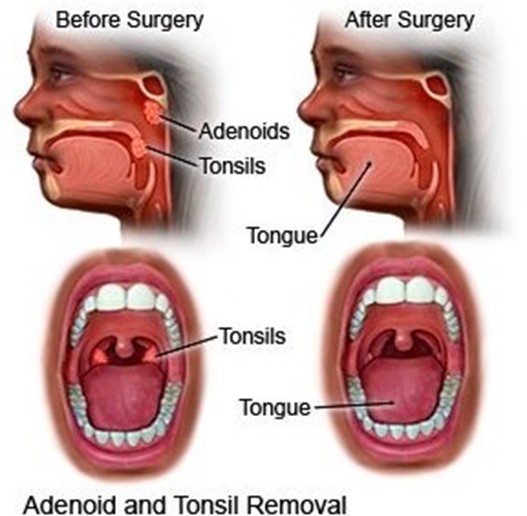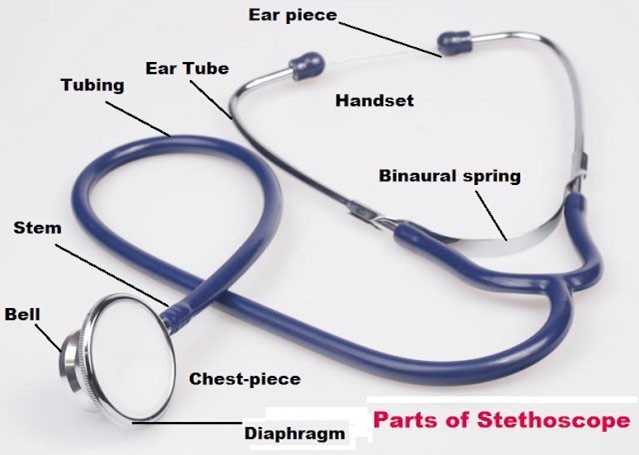While obtaining the vital signs of a 10-year-old child who had a tonsillectomy this morning, the nurse observes the child swallowing every 2 to 3 minutes.
Which assessment should the nurse implement?
Inspect the posterior oropharynx.
Touch the tonsillar pillars to stimulate the gag reflex.
Ask the child to speak to evaluate change in voice tone.
Assess for teeth clenching or grinding.
The Correct Answer is A
The nurse should inspect the posterior oropharynx of a child who is frequently swallowing after tonsillectomy to assess for bleeding or the presence of clots. Swallowing frequently can be a sign of postoperative bleeding, which is a potential complication of tonsillectomy.
Touching the tonsillar pillars to stimulate the gag reflex or asking the child to speak would not provide information about the presence of bleeding.
Assessing for teeth clenching or grinding is not related to this particular observation.

Nursing Test Bank
Naxlex Comprehensive Predictor Exams
Related Questions
Correct Answer is D
Explanation
To ensure the cooperation of a preschooler during an assessment of lung sounds, the nurse can allow the child to use a stethoscope on a stuffed animal. This helps the child understand what is happening and feel more comfortable with the procedure. Having the child blow a cotton ball (A), placing a toy in the child's hands (B), and offering bubbles (C ) may distract the child but do not directly involve them in the procedure.

Correct Answer is A
Explanation
The boy's reported symptoms may indicate stress or anxiety related to his school experience. By asking the boy to describe a typical day at school, the nurse can gather information about the child's interactions with teachers and peers, academic performance, and any other potential sources of stress. This information can be used to develop an appropriate plan of care that addresses the child's emotional and physical needs.
Comparing vital signs or conducting a neurological assessment may not provide useful information in this case, and counseling the parents to pay more attention to the child is not a recommended intervention without first identifying the underlying cause of the child's symptoms.
Whether you are a student looking to ace your exams or a practicing nurse seeking to enhance your expertise , our nursing education contents will empower you with the confidence and competence to make a difference in the lives of patients and become a respected leader in the healthcare field.
Visit Naxlex, invest in your future and unlock endless possibilities with our unparalleled nursing education contents today
Report Wrong Answer on the Current Question
Do you disagree with the answer? If yes, what is your expected answer? Explain.
Kindly be descriptive with the issue you are facing.
